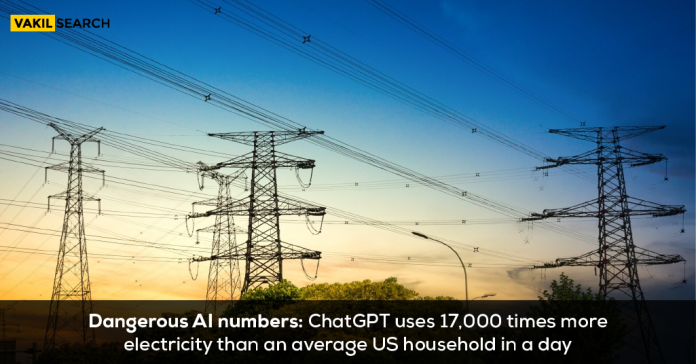Artificial intelligence (AI) is a cutting-edge technology that is currently influencing many facets of our lives through its AI-driven features and applications. However, a recent New Yorker exposé draws attention to a noteworthy—though frequently disregarded—effect of its broad adoption: the enormous energy requirements it necessitates. This disclosure clarifies the unintended consequences of the AI surge.
The study highlights the enormous amount of energy needed to maintain the operations of the widely used chatbotChatGPT, which was created by OpenAI. Surprisingly, ChatGPT consumes an incredible 500,000 kWh per day to process the 200 million queries it receives from users. This consumption is more than 17,000 times greater than the average US household’s energy use. These figures raise questions about how long-term these kinds of energy-hungry AI systems can last.
When you consider the wider adoption landscape of AI, the consequences become even more frightening. The Dutch National Bank’s data scientist Alex de Vries investigated the possible energy drain that could result from the increasing integration of AI technology in a study that was published in the journal Joule. If Google were to integrate generative AI into all of its search functions, for example, the amount of energy used may rise to an astounding 29 billion kilowatt-hours per year. This incredible amount exceeds the total annual energy use of countries such as Kenya, Guatemala, and Croatia together.
In a Business Insider interview, Alex de Vries highlights how AI systems are intrinsically energy-intensive. He points out that the combined power usage of over a dozen UK families is already surpassed by the power consumption of individual AI servers. These disclosures pose important queries about the long-term viability and environmental effects of the rapidly developing AI sector.
Even if AI is still revolutionising many different industries and improving our technological skills, we still need to be aware of the significant energy footprint it leaves behind. To ensure that AI progress follows a sustainable and responsible path, this energy rapport must be addressed.



